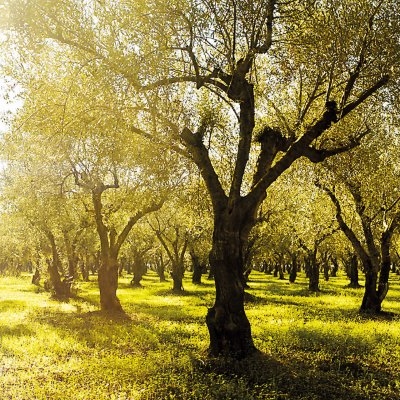
News

The elixir of olive oil
JORDAN MOSHE
“Much like the Jewish people, the olive tree is resilient,” said Fotini Balassis, the owner of the Olive You deli. “From plagues to war, they have literally lasted thousands of years, and continue to produce fruit today.”
Balassis was giving a presentation at the Academy of Jewish Thought and Learning’s recent Chanukah Fest at Sydenham Shul in Johannesburg, which included an olive oil tasting.
“The olive trees of Crete, which are 3 000 years old, have been declared monuments, and still produce olives,” she said. “There are trees in Lebanon that are 6 000 years old, and the locals consider them a living miracle. They have survived changing climates, disease, and war in the region.
“Bethlehem boasts trees about 4 000 years old. An analysis of the area has found amphora containing oil that dates back 8 000 years. Olive oil has been around since time immemorial.”
According to Balassis, the tree species itself is said to have been in existence for 20 to 40 million years in the Middle East, Persia, and the Mediterranean basin. The plant we know today first appeared about 7 000 years ago, and the oil its fruit produces has been considered valuable since then.
“Olive oil was traded as a commodity, and still is today,” said Balassis. “Olive leaves were used in ancient Olympic games to crown athletes, and a jug of olive oil was given to them. This was the highest accolade one could receive.”
The oil continues to be valued today, with the ubiquitous use of olive oil in our kitchens, and the high prices we pay for quality oil. Said Balassis, “Sometimes we think that extra virgin olive oil is really expensive. But when you realise that it takes a whole six kilos of olives to produce one litre of the oil, it really makes sense. A good rule of thumb is that price is often an indicator of quality. Expensive, extra virgin olive oil has no substitute. If you want quality, you have to pay for it.”
“Olives are taken from the tree, gathered as quickly as possible, and hastened to the press. The olive is a fruit, and it starts to decompose as soon as it’s picked. The vitamins start to fade as soon as this happens. Between 24 to 48 hours is the ideal time for pressing to ensure that all the benefits are not lost,” she explained The smaller the farm, the better the quality of the oil. This is because the fruit doesn’t need to travel as far to the press, and can be pressed and bottled much faster.
Because extra virgin cold pressed olive oil is pressed as close to the source as possible, it has no opportunity to become contaminated by being exposed to anything else. Therefore, according to the Beth Din of South Africa, cold-pressed olive oil requires no kosher certification. Additionally, any type of olive oil is acceptable for use in lighting Chanukah candles.
These days we press the oil mechanically. The more it is processed and refined, the less pure it becomes. “Many people think that light olive oil is lighter in calories, and therefore healthier. This is not accurate. It is called light because it is lighter in colour and flavour because it has been processed more,” Balassis said.
Sip it like whisky
Taking up the glasses in front of us, we warmed the samples by cupping them in our palms and covering them up. Sipping the oil like whisky connoisseurs, we were told to line our tongues with the oil, and breathe through our mouths to air it. The different flavours were discernible, and the potency of the various samples immediately apparent.
While sipping from our glasses, Balassis outlined the health benefits of the oil. Not only is it effective externally on the skin, it can assist in treating internal issues including diabetes, depression, earache, heart issues, and obesity. The purer the oil, the greater the benefits for health and cooking.
Although this means that extra virgin olive oil is idea for cooking, it is important to remember that exposing it to high heat will cause minerals to be lost. It is therefore better to use more oil or a lower heat for frying food.
Olive oil flavours are categorised as mild, medium, or robust. The best way to test olive oil is by using your senses, Balassis said. Your eyes, nose, and mouth are the best tools to test its true quality. As with wine tasting, she recommends looking out for certain notes, colours, and smells.
“In Italy, 20 commercially available olives oils were tested, and 11 of them were found to be less than pure when the belief was the opposite,” Balassis said. “You really need to be careful. Train yourself, and you’ll be able to make the call.”




